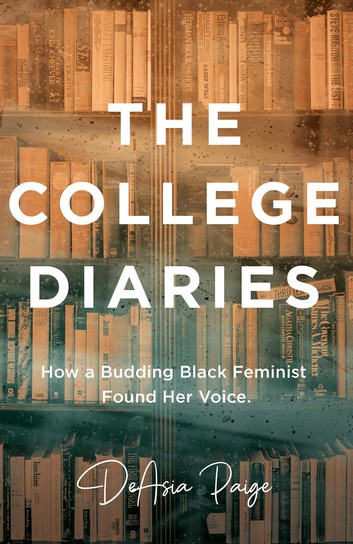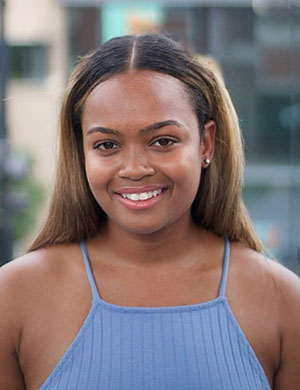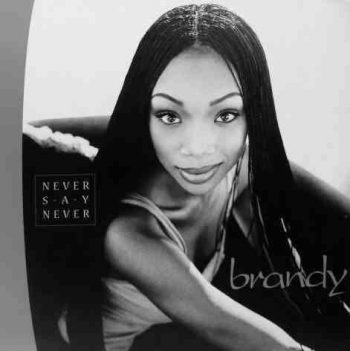This content is being reviewed in light of recent changes to federal guidance.
Book Review: ‘The College Diaries: How a Budding Black Feminist Found Her Voice’
Categories: Guest Blogger, HBW

The College Diaries (2020)
DeAsia Paige, HBW alum and author of The College Diaries: How a Budding Black Feminist Found Her Voice, has boldly produced an intimate yet informative debut memoir. Her message clearly emphasizes that “there’s beautiful power in Black women choosing to liberate themselves from the choices already created for them” [33]. Using herself as an example, the author reveals her evolving freedom while challenging her religious beliefs exploring her sexual liberation, and ultimately experiencing the necessary healing from traumatic life events. Besides the utilization of relevant timelines and Black feminist scholarship, The College Diaries centers the strong relationship between the author and Black musical artists to discuss her personal experiences with sexual assault, abortion, and mental health.

PC: HBW archives
Divided into six parts, the book covers three important years in Paige’s life from Summer 2016 to Fall 2019. Framing the period between the murder of Alton Sterling by Baton Rouge police on July 5, 2016 and the fatal robbery of Brooklyn rapper Pop Smoke on February 19, 2020, Paige brilliantly references pertinent events in Black culture to provide context for her readers. For example, she reflects on the police-related death of Philando Castile on July 6, 2016 as it dampened her excitement to start college the following fall. Paige even recalls the fifty-two percent of white women who voted for Trump in November 2016 and her own questioning of Hillary Clinton’s ostensible white feminist agenda to exemplify her initial interest in Black feminist scholarship.
The influence of Black feminists and Black radical women are undeniably evident in the depictions of her growing political activism and unapologetic sex life. While attending the Women’s March 2017, the author gains inspiration from Angela Davis, Audre Lorde, bell hooks, and Assata Shakur, to add her voice to those who aim to dismantle what hooks famously calls “white supremacist capitalist patriarchy.” According to Paige, Black feminism introduced her to concepts of sex positivity and pleasure politics through the kind of sex education that embraces views the Black women’s sexual liberation as a conscious revolutionary act against hypersexuality tropes and conventional religious norms including marriage, virginity, and monogamy.

Women’s March 2017 PC: Mario Tama/Getty Images
Along with Black feminist scholarship, The College Diaries focuses on the therapeutic impact of Black musical artists on the author’s emotional well-being throughout her undergraduate years. Due to her deep connection to black church music as a member of the choir since childhood, Paige shows readers music as her love language, so much so that “[if] we can’t sing along to Lauryn Hill’s ‘Ex-Factor,’ mimic Nicki Minaj’s delivery in every lyric of her verse on ‘Monster,’ or trade our favorite J-Dilla-produced songs, then I’m not sure if we can really be friends” [62]. In Summer 2016, Rihanna’s eighth album “ANTI”— her first project with complete creative control—motivated Paige to consider college the perfect opportunity to take control of her own life. Solange’s “A Seat at the Table” is the Spring 2017 soundtrack when the author is struggling at a predominantly white institution and desperately in need of Black female empowerment.
Paige’s deep connection to music also serves as healing from her devastating experiences with sexual assault, abortion, and mental health challenges. Following her July 7, 2018 sexual assault, Brandy’s album “Never Say Never” offers lyrical solace while Frank Ocean’s “Blonde” encourages the author to be vulnerable and honest about her feelings. She vividly replays the painful events that led up to her abortion beginning Saturday, October 26, 2019 – her 21st birthday. Relying on her gospel musical roots, the author listens “to nothing but Tasha Cobbs and Kirk Franklin just to escape the fact that I was pregnant. I desperately needed to hear something from a higher power… I needed to feel a divine connection” [95]. While depression is a major focus, the author also identifies her prioritization of men’s feelings to seek happiness as another mental health issue. During a summer of therapy, routine gym workouts, and a dream internship at VICE in 2019, Megan Thee Stallion’s lyrics reassure her that she may not have a man in her life but she “simply didn’t need a nigga” [55].

Brandy’s album “Never Say Never” (1998)
Unabashedly raw, the memoir is a welcome recommended for everyone but especially for Black women who have struggled not only with college but also with unhealthy societal labels, misogynoir, religious beliefs, sexual violence, unplanned pregnancy, and/or mental health concerns. The College Diaries successfully normalizes sexual and reproductive health-related conversations among Black women. At the same time, it dismantles monolithically harmful stereotypes, destigmatizes mental health in Black communities, and highlights the severe lack of culturally tailored mental health services and supportive social networks within our educational institutions. Perhaps the book’s strongest appeal is the critical role it can play in helping other budding Black feminists find their voices.